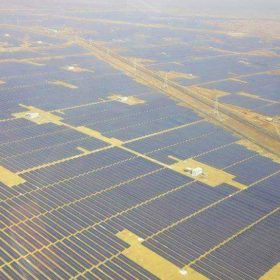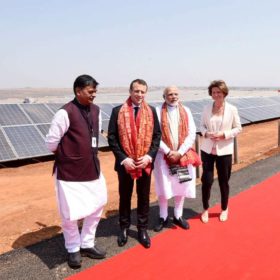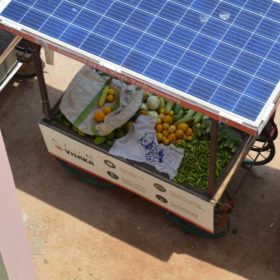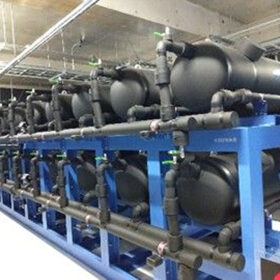SECI tenders another 32 MW (AC) solar projects for SCCL
The solar panels shall be installed on the coal miner’s over burden (OB) dump at Ramagundam (22 MW) and Dorli (10 MW) sites in Peddapalli district of Telangana. Bidding closes on April 22.
SECI tenders 34 MW (AC) solar projects for SCCL in Telangana
The grid-connected, ground-mounted projects—to be set on turnkey basis—shall come up at Chennur (11 MW) and Kothagudam (23 MW) sites of Singareni Collieries Company Limited (SCCL). Bids can be submitted till April 20.
Mahindra Renewables to sell 3 solar arms to CLP India
Cleansolar Renewable Energy, Divine Solren and Neo Solren—all of which were formed to set up and operate solar plants in Telangana—would be sold for around Rs 340 crore. The transaction is expected to be completed by May 31, 2020.
Renewable energy: 7,592 MW commissioned in first nine months of the fiscal year
Capacity additions for the current fiscal year are set to exceed the previous accounting period’s 8,532 MW. With Rs405 billion invested in clean energy in the last fiscal year, spending in the first nine months of 2019-20 has been estimated at Rs367 billion.
NTPC tenders operation and maintenance of 10 MWp solar plant
February 10 is the last date to submit bids for the plant at NTPC-Ramagundam Super Thermal Power Station in Karim Nagar district of Telangana. Bids will open on February 11.
Engie sells controlling stake in 813 MW Indian solar portfolio
Mumbai investor Edelweiss Group will gain a controlling stake in the generation assets in a deal which Engie says will allow it to reduce its debt by Rs3,160 crore.
Visaka’s solar roof receives IEC CB 2016 and UL 61730 certification
Compliance to revised IEC standards allows the ATUM roof with integrated solar panels to chart markets in over 50 countries.
Rajasthan set to take the solar crown in 2020
Norwegian analyst Rystad Energy has predicted the stop on PV tenders in Karnataka will see Rajasthan become India’s leading solar state this year. The market research firm expects India to add only 10 GW new solar in 2020, however, and the same figure in 2021.
Closing the information gap will drive rooftop solar, says Freyr Energy
Up to 70% of prospective customers have shied away from owning a rooftop solar system due to lack of readily available information on how to assess various solar options, says Saurabh Marda, co-founder and managing director of Freyr Energy – a Hyderabad-based rooftop solar firm that has completed over 1200 installations in just 5 years since inception in 2014.
White paper sums up e-transport policy progress across India
Range anxiety continues to be an obstacle to electric vehicle take-up but the nation’s willingness to embrace car-sharing and other workarounds offers plenty of promise to the sector, according a World Economic Forum report.












